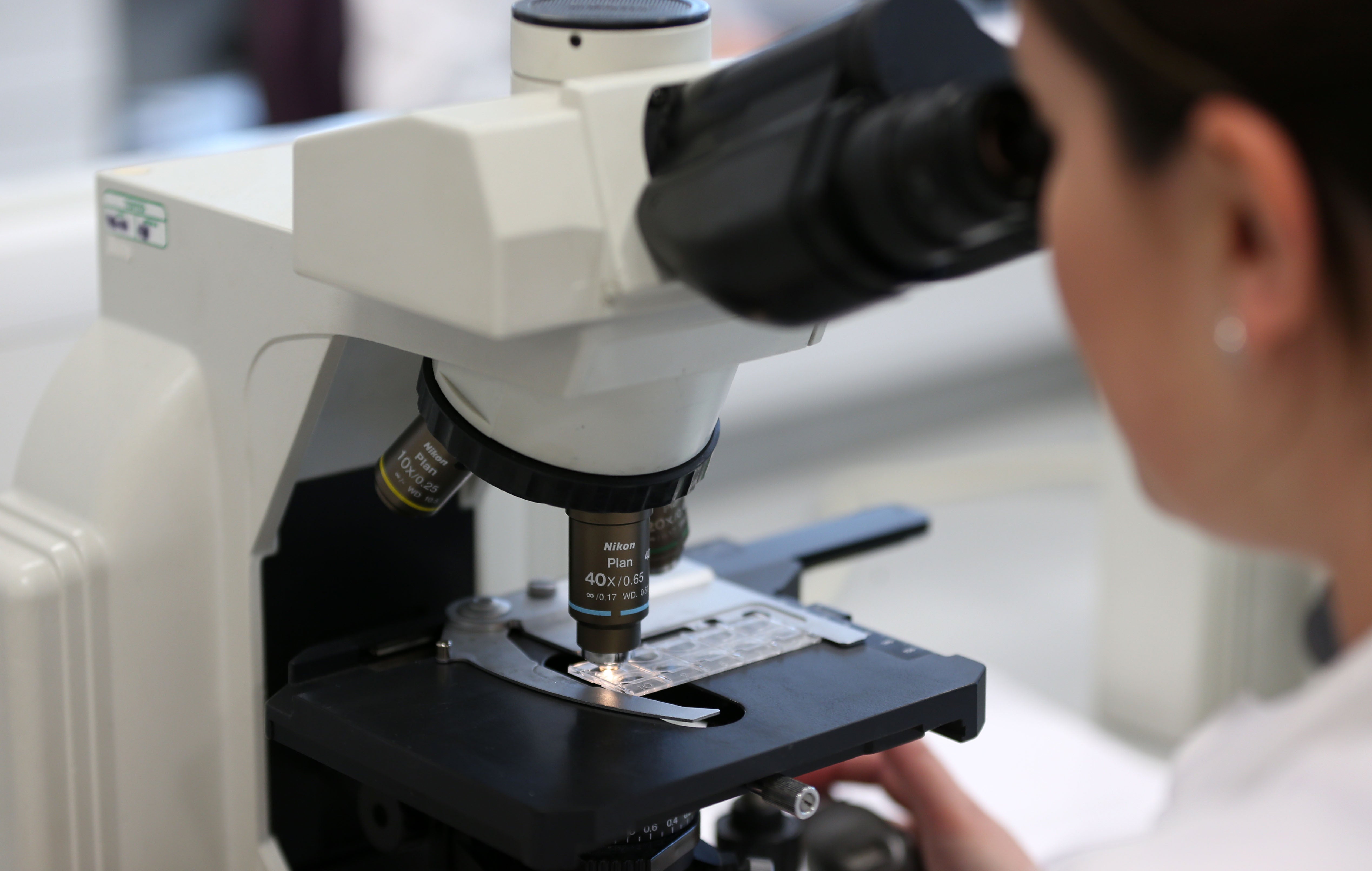Biggest study of its kind implicates specific genes in schizophrenia
Experts say the findings are a step towards understanding the causes of the condition and identifying new treatments

Your support helps us to tell the story
From reproductive rights to climate change to Big Tech, The Independent is on the ground when the story is developing. Whether it's investigating the financials of Elon Musk's pro-Trump PAC or producing our latest documentary, 'The A Word', which shines a light on the American women fighting for reproductive rights, we know how important it is to parse out the facts from the messaging.
At such a critical moment in US history, we need reporters on the ground. Your donation allows us to keep sending journalists to speak to both sides of the story.
The Independent is trusted by Americans across the entire political spectrum. And unlike many other quality news outlets, we choose not to lock Americans out of our reporting and analysis with paywalls. We believe quality journalism should be available to everyone, paid for by those who can afford it.
Your support makes all the difference.The largest-ever genetic study of schizophrenia has identified large numbers of specific genes linked to the disorder.
Researchers found a greater number of genetic links to schizophrenia than ever before, in 287 different regions of the genome – the human body’s DNA blueprint.
Within these regions, they were able to identify 120 genes likely to contribute to the disorder.
Experts say the findings are a step towards understanding the causes of the condition and identifying new treatments.
We hope the findings in this, and the companion studies, can be used to advance our understanding of the disorder and facilitate the development of radically new treatments
Schizophrenia is a serious psychiatric disorder that causes a range of different psychological symptoms including hallucinations and delusions.
It starts in late adolescence or early adulthood, and, according to the World Health Organisation, affects about one in 300 people worldwide.
Co-lead author Professor Michael O’Donovan, from the division of psychological medicine and clinical neurosciences at Cardiff University, said: “Previous research has shown associations between schizophrenia and many anonymous DNA sequences, but rarely has it been possible to link the findings to specific genes.
“The present study not only vastly increased the number of those associations, but we have now been able to link many of them to specific genes, a necessary step in what remains a difficult journey towards understanding the causes of this disorder and identifying new treatments.”
Hundreds of researchers across 45 countries analysed DNA from 76,755 people with schizophrenia and 243,649 without it.
As well as identifying the specific genes, the Psychiatric Genomics Consortium study found the genetic risk for schizophrenia is seen in genes concentrated in brain cells called neurons, but not in any other tissue or cell type.
Professor James Walters, co-lead author on the Cardiff-led paper and director of the MRC Centre for Neuropsychiatric Genetics and Genomics at Cardiff University, said: “Whilst people with schizophrenia can recover, many do not respond well to treatments, experience long-term problems with their mental and physical health, as well as impacts on relationships, education and work.
“We hope the findings in this, and the companion studies, can be used to advance our understanding of the disorder and facilitate the development of radically new treatments.
“However, those processes are often not straightforward and a lot of work by other neuroscientists is needed to translate the genetic findings into a detailed understanding of disease mechanisms.”
The findings are published in the Nature journal.
In a linked paper, landmark research involving scientists at UCL identified for the first time 10 genes with extremely rare mutations that significantly increase an individual’s risk of developing schizophrenia.
We have now been able to detect specific genes, a necessary step in the challenging journey towards understanding the causes and mechanisms of any disorder
According to the SCHEMA Consortium paper published in Nature Genetics, in one instance this was by more than 30-fold.
Professor Andrew McQuillin, co-author of the papers and head of the UCL Molecular Psychiatry Laboratory (UCL Division of Psychiatry), said: “We have now been able to detect specific genes, a necessary step in the challenging journey towards understanding the causes and mechanisms of any disorder.”